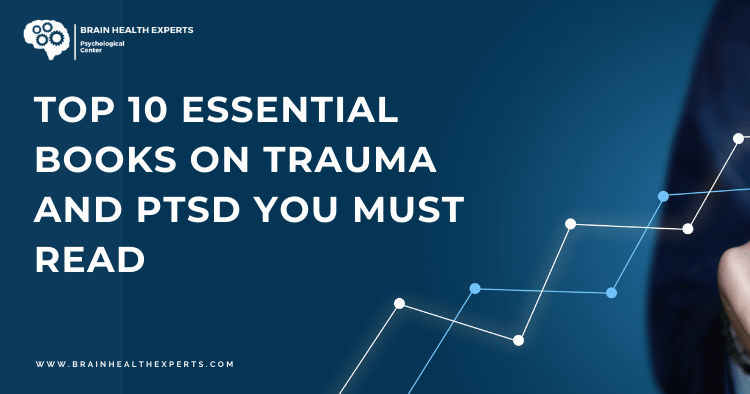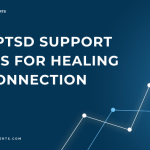Table of Contents
- Introduction
- Understanding Trauma and PTSD
- Top 10 Essential Books
- 1. The Body Keeps the Score by Bessel van der Kolk
- 2. Waking the Tiger: Healing Trauma by Peter A. Levine
- 3. Complex PTSD: From Surviving to Thriving by Pete Walker
- 4. Trauma and Recovery by Judith Herman
- 5. The PTSD Workbook: Simple, Effective Techniques for Overcoming Traumatic Stress Symptoms by Mary Beth Williams and Soili Poijula
- 6. Healing Trauma: A Pioneering Program for Restoring the Wisdom of Your Body by David Berceli
- 7. The Deepest Well: Healing the Long-Term Effects of Childhood Adversity by Nadine Burke Harris
- 8. It Didn’t Start with You: How Inherited Family Trauma Shapes Who We Are and How to End the Cycle by Mark Wolynn
- 9. Trauma-Sensitive Schools: Learning Communities Transforming Children’s Lives by Susan E. Craig
- 10. The Polyvagal Theory: The Transformative Power of Feeling Safe by Stephen W. Porges
- FAQs about Trauma and PTSD
- Conclusion
Introduction
Trauma can leave deep emotional scars, often leading to conditions like Post-Traumatic Stress Disorder (PTSD). Understanding trauma and its effects is crucial for healing. Books on this topic serve as invaluable resources for individuals seeking insight, coping strategies, and healing. In this article, we’ll explore ten essential books that address trauma and PTSD, offering knowledge and guidance for anyone affected by these challenges.
“The first step towards healing is understanding what you are going through.”
Understanding Trauma and PTSD
Trauma is a psychological response to distressing events, which can vary widely in nature—from natural disasters to personal loss or abuse. When these experiences overwhelm a person’s ability to cope, they may develop PTSD, characterized by symptoms such as flashbacks, severe anxiety, and uncontrollable thoughts about the traumatic event.
For further information, the National Institute of Mental Health provides comprehensive resources on PTSD and its impact. Also, consider exploring 10 proven stress management techniques for daily relief to help manage the symptoms associated with trauma.
“Understanding is the first step to healing.”
Top 10 Essential Books
1. The Body Keeps the Score by Bessel van der Kolk
This groundbreaking book explores how trauma affects both the mind and body. Dr. van der Kolk emphasizes the importance of understanding the physical manifestations of trauma and offers innovative treatment options, including yoga, mindfulness, and neurofeedback. His insights have transformed the way therapists approach trauma recovery. You can also refer to 10 effective techniques to manage anxiety in daily life for integrating mindfulness into your healing journey.
“Our bodies carry the stories of our traumas; understanding them is key to healing.”
2. Waking the Tiger: Healing Trauma by Peter A. Levine
In Waking the Tiger, Levine presents a unique perspective on trauma, suggesting that it’s a natural response to overwhelming experiences. He argues that animals in the wild instinctively know how to process trauma, and humans can learn from this. The book includes practical exercises to help readers reconnect with their bodies and emotions, aiding in the healing process.
“To heal trauma, we must learn to listen to our bodies.”
3. Complex PTSD: From Surviving to Thriving by Pete Walker
Walker’s book focuses on Complex PTSD, which arises from prolonged exposure to trauma, often in childhood. He provides an in-depth understanding of its symptoms and offers a self-help guide for recovery. His compassionate approach encourages readers to acknowledge their experiences while empowering them to reclaim their lives.
“Acknowledgment is the first step in the journey to recovery.”
4. Trauma and Recovery by Judith Herman
Herman’s work is a seminal text in trauma studies, outlining the stages of recovery from trauma. She emphasizes the importance of community and support in the healing process. This book serves as a fundamental guide for understanding the long-term effects of trauma and the pathways to recovery.
“Recovery from trauma is a process best navigated with support and community.”
5. The PTSD Workbook: Simple, Effective Techniques for Overcoming Traumatic Stress Symptoms by Mary Beth Williams and Soili Poijula
As a practical guide, this workbook offers exercises and tools designed to help individuals manage PTSD symptoms. It combines therapeutic techniques with personal reflections, allowing readers to engage actively in their healing journey. This hands-on approach makes it an excellent resource for both individuals and therapists.
“Practical tools empower us to take charge of our healing.”
6. Healing Trauma: A Pioneering Program for Restoring the Wisdom of Your Body by David Berceli
Berceli introduces a body-centered approach to trauma recovery through his Trauma Release Exercises (TRE). This book provides readers with insights into how stored trauma can affect physical health and offers a series of exercises designed to release tension and restore balance.
“Healing is not just about the mind; it encompasses the body and spirit.”
7. The Deepest Well: Healing the Long-Term Effects of Childhood Adversity by Nadine Burke Harris
Dr. Burke Harris highlights the long-term effects of childhood adversity on health and well-being. She discusses the ACE (Adverse Childhood Experiences) study and its implications for understanding trauma. By intertwining personal stories with scientific research, she advocates for a more compassionate approach to childhood trauma and its lasting impact.
“Understanding childhood adversity is crucial for fostering resilience.”
8. It Didn’t Start with You: How Inherited Family Trauma Shapes Who We Are and How to End the Cycle by Mark Wolynn
Wolynn explores the concept of intergenerational trauma—how trauma can affect not just those who experience it, but also their descendants. This enlightening book offers a fresh perspective on healing by addressing familial patterns and providing exercises to break the cycle of trauma.
“Healing begins when we acknowledge the patterns of the past.”
9. Trauma-Sensitive Schools: Learning Communities Transforming Children’s Lives by Susan E. Craig
This book is a must-read for educators and caregivers. Craig discusses how trauma affects students and provides strategies for creating trauma-sensitive learning environments. By fostering understanding and support, educators can significantly impact the lives of children who have experienced trauma.
“Creating a supportive environment is key to helping children thrive after trauma.”
10. The Polyvagal Theory: The Transformative Power of Feeling Safe by Stephen W. Porges
Porges introduces the Polyvagal Theory, which explains how our nervous system responds to trauma and stress. This book offers insight into the biological mechanisms behind trauma responses and provides strategies to foster safety and connection. Understanding these concepts can empower individuals to find pathways to healing.
“Safety is the foundation upon which healing is built.”
FAQs about Trauma and PTSD
Q1: What is the difference between trauma and PTSD?
A1: Trauma refers to the emotional response to distressing events, while PTSD is a mental health condition that can develop after experiencing or witnessing such events. Not everyone who experiences trauma will develop PTSD.
Q2: How can reading help with trauma recovery?
A2: Reading about trauma can provide validation, understanding, and coping strategies. It can also help individuals feel less isolated in their experiences and empower them to seek help. For additional support, refer to 10 powerful techniques to cultivate a positive mindset to enhance your recovery journey.
“Knowledge is power; reading can open doors to healing.”
Q3: Are these books suitable for everyone?
A3: While these books are informative, it’s essential to note that each person’s healing journey is unique. Some may find certain approaches resonate more than others. Consulting a mental health professional can help tailor a recovery plan.
Q4: Where can I find mental health resources?
A4: The Substance Abuse and Mental Health Services Administration (SAMHSA) offers a national helpline and resources for finding support.
“Finding the right resources is vital for your healing journey.”
Conclusion
Books on trauma and PTSD are essential tools for understanding and healing from distressing experiences. Whether you’re seeking personal insight or looking to support a loved one, the titles listed here provide valuable knowledge and practical strategies. Remember, healing is a journey, and you’re not alone. As you explore these resources, may you find the comfort and strength needed to navigate your path.





